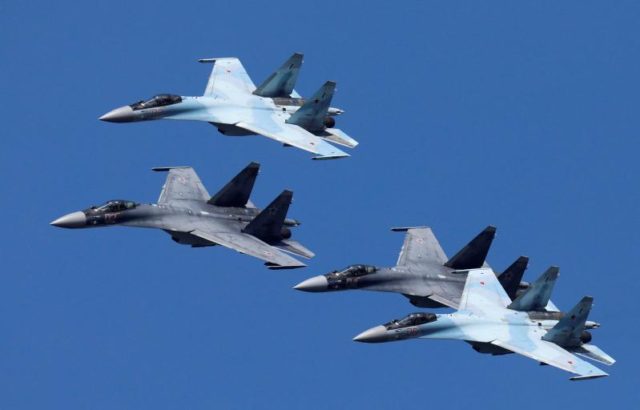Russia delivered fourth generation fighter jets to Libya in order to back its state-sponsored private military contractors (PMC), according to a Tuesday statement from the U.S. Africa Command. Moscow’s deployment of warplanes comes amid a stagnation in the conflict between the Russian-backed rebels of the Libyan National Army (LNA) and the Government of National Accord (GNA)
The PMC will most likely use the fighter jets for close-air support and offensive fire. The planes were first sent to Syria to be painted in order to hide their Russian origin before being sent to Libya. The Wagner Group, the largest Russian PMC deployed in Libya, aids general Khalifa Haftar and its Benghazi-based LNA against the UN-recognized GNA in Tripoli. Russia denies claims it supports the Wagner group, but the owner of the group Yevgeniy Prigozhin is a close ally of Vladimir Putin.
Russia’s escalation in Libya presents historic parallels to its 2015 military intervention in Syria; offering up decisive airpower to help an ally overcome military stalemate and avoid a negotiated solution to the conflict. The move will prop up Gen. Haftar rebel forces and eliminate the incentive to seek a political compromise with the GNA.
The U.S. also worries that Moscow’s actions would enable more advanced weaponry to be brought into the country including “anti-access area denial capabilities.” Thus creating “very real security concerns on Europe’s southern flank,” according to Gen. Jeff Harrigian, Commander of U.S. Air Force in Europe and Africa.
The current civil war in Libya resulted from a disputed election in 2014, following the fall of Dictator Muammar Gaddafi in 2011. Egypt, the United Arab Emirates, Russia, Saudi Arabia, Jordan and France back General Haftar who controls the eastern side of the country. The United Nations, the United States, Qatar, Turkey, and Italy all support Prime Minister Fayez al-Sarraj and his democratically elected government. Foreign powers wish to influence libyan politics because the country holds the largest oil reserve in Africa and is also a major natural gas player. Additionally, the country also represents numerous security challenges, acting as a transit point for migrants leaving to Europe and a safe-harbor for terrorist groups in ungoverned spaces.


